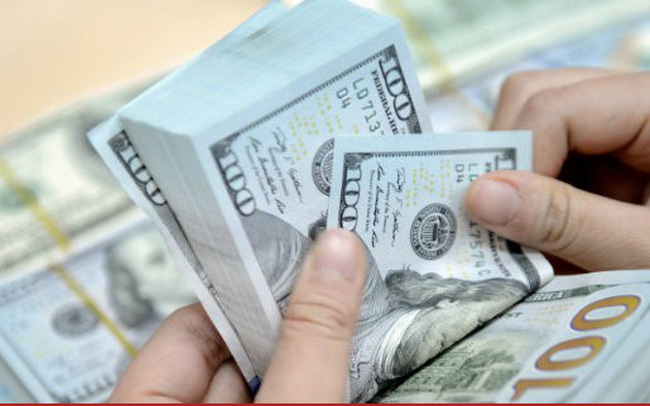|
USD
appreciation feared to rouse inflation
The
silence of the forex market in 2017 has been broken as the dollar appreciated
right after the Tet holiday.

Both the official exchange rate
announced by the State Bank of
The official price announced on February 28 was VND22,463 per dollar, or VND15 per dollar higher than the day before. Meanwhile, commercial banks quoted the sell price at VND22,795 per dollar. As such, the official exchange rate increased by VND20 per dollar, or 0.18 percent, compared with February 21, or the first working day after the long Tet holiday. Meanwhile, Vietcombank’s exchange rate increased from VND22,665-22,735 to VND22,715-22,785 per dollar, or 0.1 percent after five working days. In the global market, the dollar escalated after the first hearing before the US Congress of FED chair Jerome Powell. The global monetary, stock and debt markets saw changes because of fear of inflation in the
Nguyen
Tri Hieu, a banking expert, said the dong/dollar exchange rate has been
influenced by changes in the world market and internal factors of the
The external factors include the FED’s plan to raise the prime interest rate this year and the uncertainties in the world political arena. Regarding internal factors, Hieu believes the zero percent deposit interest rate policy puts pressure on the dong/dollar exchange rate. “The zero percent interest rate policy can serve the anti-dollarization process, but it causes difficulties for commercial banks in mobilizing capital in dollars,” he said. Meanwhile, The high demand for foreign currencies and limited supply will put pressure on the exchange rate. Some finance experts have urged the State Bank to terminate the zero percent interest rate policy, saying it has accomplished its mission and is now the right time to raise the dollar interest rate so as to mobilize more capital from the public instead of foreign loans at high interest rates. In principle, any exchange rate adjustments would affect the inflation rate because the two indicators are closely related. Hieu said the higher dollar price would make imports more expensive, which would affect the average price level of goods and increase the CPI. Many imports are input materials for domestic production, so the prices of finished products are expected to increase proportionally. The government has vowed to control the inflation rate at around 4 percent this year.
M. Ha, VNN
|
Thứ Hai, 12 tháng 3, 2018
Đăng ký:
Đăng Nhận xét (Atom)
Không có nhận xét nào:
Đăng nhận xét